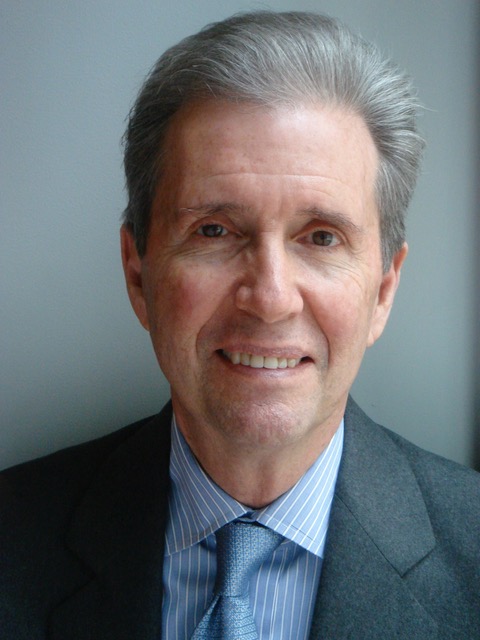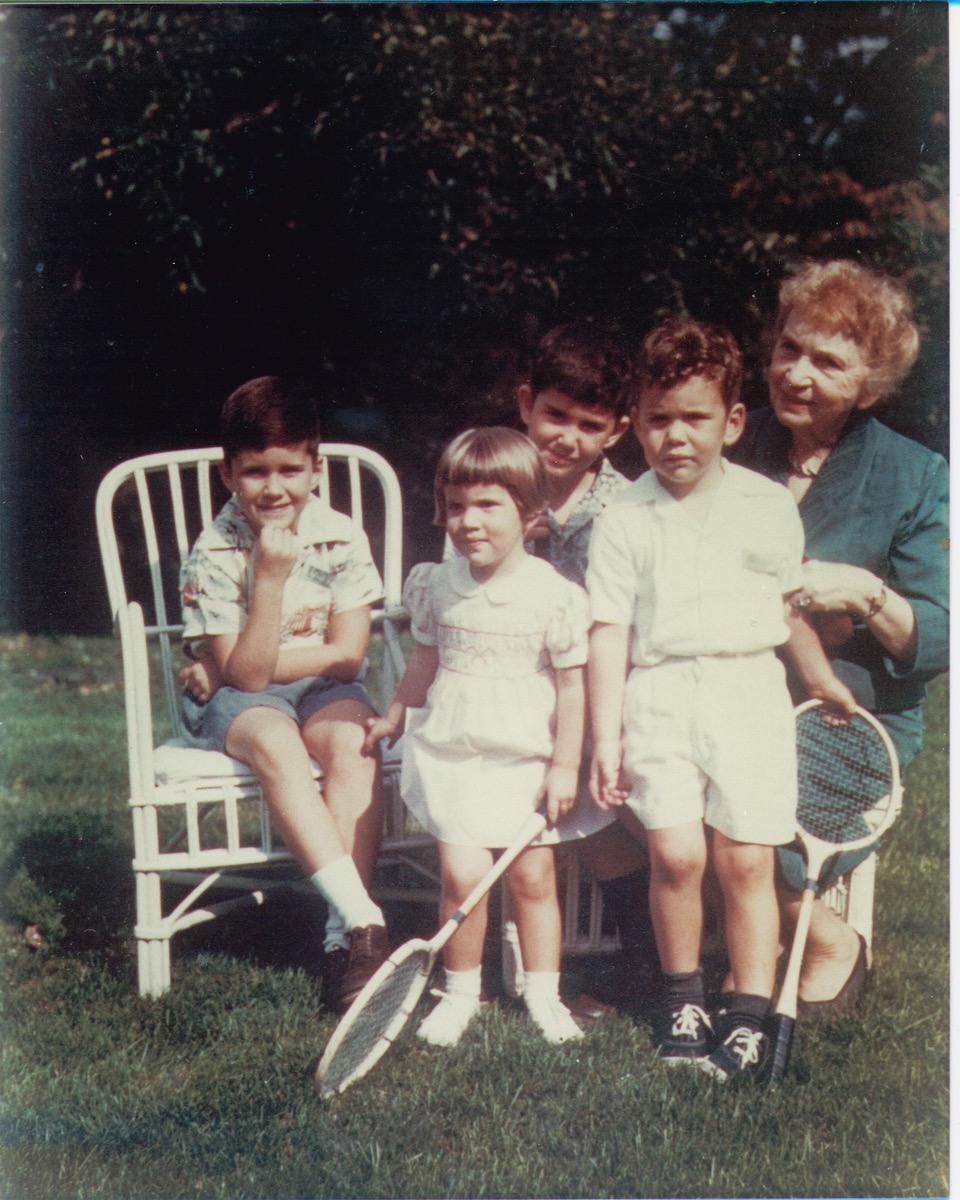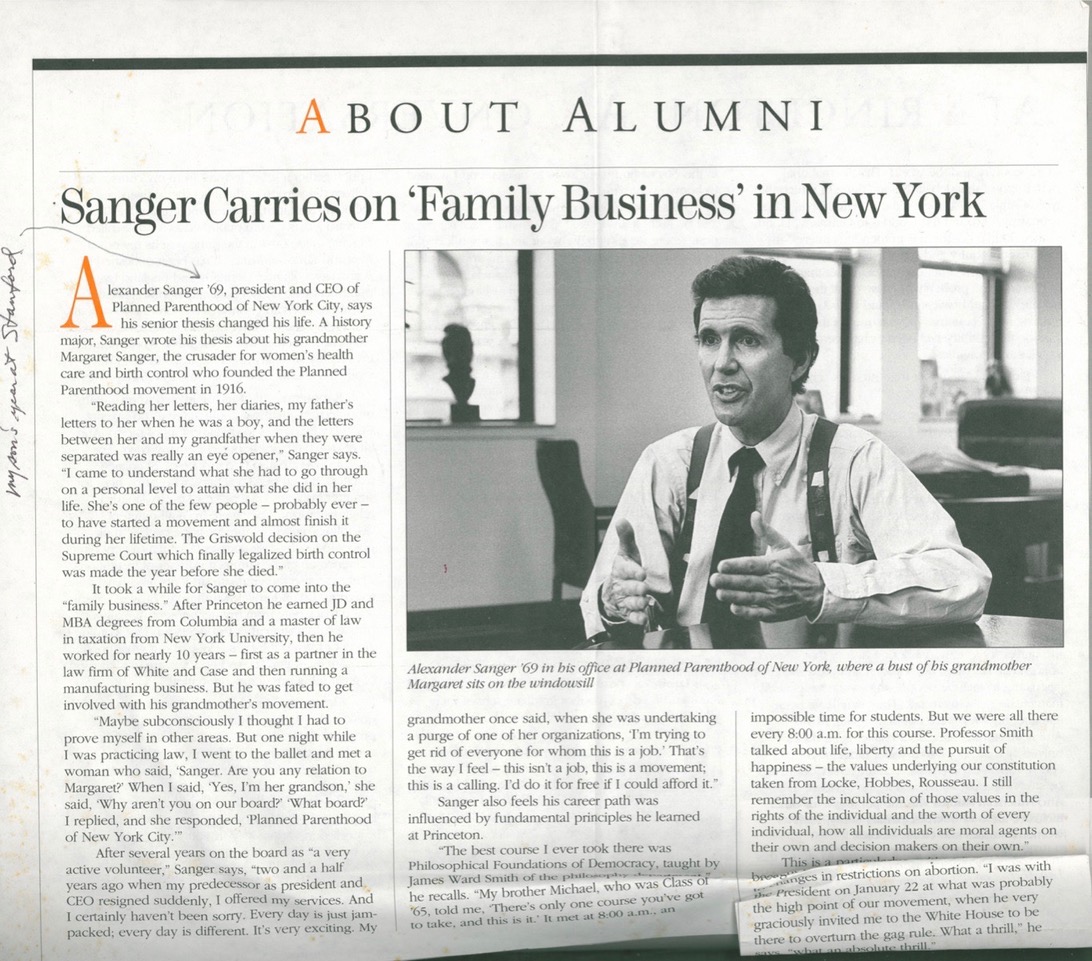 |
Catching Up With . . . Alex Sanger

His Past Became His Present, And His Futureby Brooke C. Stoddard '69
Below, left: Alex Sanger (photo by Joyce Ravid). Below right: Alex, on the left, with Grandmother Margaret Sanger  
Alex Sanger grew up in Mt. Kisco, N.Y., in Westchester County. His father was a surgeon, one of three children of renowned social reformer and feminist crusader Margaret Sanger. Alex's mother was also a physician. Alex had three older brothers as well as a younger brother and younger sister. His father was Princeton Class of 1931 and rowed on the Lightweight Crew. The elder Sanger was a keen supporter of Princeton football and Princeton rowing, and, in fact, years later, the Princeton Rowing Association, when it began fostering women's crews, named a shell for him -- appropriately it became the boat of the women's varsity. On account of the elder Sanger's interest in Princeton sports, the Sanger family often found itself on autumn Saturdays in Palmer Stadium rooting for the Tigers, impressions not lost on the young Alex. After middle school, Alex went to Andover in Massachusetts and played “middling” hockey. An older brother was in the Princeton Class of 1965, so it's no surprise Alex applied. He was accepted. He quickly set himself to Freshman and JV Hockey at Baker Rink and majored in History. "I loved history," Alex says. "I never felt the pull of another major." A course that captivated him was James Ward Smith's Philosophical Foundations of Democracy, which delved into the rights of individuals and their abilities to make their own decisions. At about the time he had to come up with a thesis topic, his legendary grandmother died, aged 87. At the time, Alex was abroad and learned much he had not known about Margaret Sanger from the obituary in The Times of London. "My father did not talk a great deal about her," Alex says. "And for most of my growing up, my grandmother lived in Tucson. She'd come East to visit in the 1950s but cross-country travel was more troublesome then and generally we'd see her only once a year." But the obit in The Times had struck a chord. Alex suggested to the head of the History Department that he write his thesis on his grandmother. The notion met stiff headwinds. "This is history?" came the reply. "She died last year." Barely beneath the surface was the view that women’s history was not quite History. Deliberations ensued until the notion narrowed to researching Margaret Sanger's efforts during 1910-1917, a formative period during which, despite distribution of contraception being illegal in many states and little discussed elsewhere, she established in Brooklyn the first Planned Parenthood office. Moreover, during this period, Margaret Sanger was connected to the Progressives and Radicals of the day. But who to advise Alex? Eric Goldman, the Department's only scholar of the 20th century, had just left to join the Lyndon Johnson administration. The Department head's solution as articulated to Alex: "We have a new man. His period is the Civil War and Reconstruction. That's about as close as I can get you." This was James McPherson. Alex did not often meet with Professor McPherson, who admitted to Alex that the Progressives were "a bit after my time." But Alex strove on. "I think I was really one of the first persons to actually write women's history," he says now. "There was a ghosted 'autobiography' of my grandmother, but in a way, I was plowing new ground. There was no Women’s History. No one had really written on a progressive women's movement." McPherson gave Alex a 1 on the thesis along with the compliment, "I learned so much from this." "The obituary and the thesis changed my life," Alex says. Indeed it began a trajectory upon which Alex still remains. This includes a professional life dedicated to women's rights not only in the United States but also around the world, and he is also working on a work based on his grandmother. Alex is weaving in material little known, indeed cloaked, during Margaret Sanger's lifetime. For example, during the World War I era, when Margaret Sanger was working to establish offices for disseminating reproductive health information, she was also moving among persons who many were calling dangerous radicals, including Big Bill Haywood, Elizabeth Gurley Flynn, and Emma Goldman. She minimized these relationships so as not to jeopardize her work spreading education about contraception and family planning. As graduation loomed, Alex felt the anxieties over the Vietnam conflict more than most -- one of his older brothers had been killed in the fighting. Alex's first move, though he knew his draft board had him in its sights, was to Washington, D. C., where he went to work for the Democratic National Committee. Hubert Humphrey had recently lost the election and the party was reeling from the riot-scarred '68 convention in Chicago. The liberal wing of the party wanted a way of selecting delegates that better reflected the nation's populations of women and minorities. "We were making significant change," Alex recalls of his DNC days, "even rewriting state law to make the delegate selection process more inclusive."
 But there was little chance of outpacing the draft board. Alex joined the Air National Guard and served six months on active duty. Released, he was not settled on a career but nonetheless took the law and business boards. He scored well enough to be admitted to a joint JD-MBA program at Columbia, which he finished in four and a half years. The degree led to a position in the Wall Street law firm White & Case, where Alex practiced trust and estate law. Working nights, he earned an advanced tax degree from NYU. But in the 1980s, the long reach of Margaret Sanger and the women's rights movements began to tell. Alex recalls a quote from Jane Austen: "Everything happens at parties." Between acts at the Lincoln Center one night in 1984, Alex was introduced to Mimi Coleman, then the chair of Planned Parenthood of New York City (PPNYC). She persuaded Alex to serve on the board. He did for six years, upon which he was elected President and CEO. Almost as soon as Alex took over PPNYC, it was involved in a Supreme Court case – Rust v. Sullivan – challenging the Bush Administration "gag rule," which forbad counselors at federally supported clinics like Planned Parenthood from discussing abortion. The case went against the women's rights groups 5-4. But in 1992, President Clinton overturned the order and invited Alex to the Oval Office as part of the recognition of the reversal. Throughout the 1990s and as head of the largest Planned Parenthood affiliates in the United States, Alex traveled the nation to other affiliates. "Everywhere I went, I was impressed by the quality of the connection to the community and the devotion to the patients who came to the clinics. The women were treated not only professionally, but also with compassion and respect. I was very proud of our people." Alex lobbied local, state and federal authorities. The work was not without foibles and rough patches. He debated anti-abortion advocates on Fox News – watching him on television one day during a debate, which could get graphic, his 10-year-old son asked his mother, “should I be watching this?” Alex was even known to be called away from family Sunday brunches by media reporters for commentary if a prominent clergy preached in the morning against abortion. Alex retired from his directorship of PPNYC in 2000 but began volunteering full time for the International Planned Parenthood Federation (IPPF), which promotes sexual and reproductive health around the world. "It's fabulously rewarding and important work," Alex says. He took time to write a book, Beyond Choice: Reproductive Freedom in the 21st Century and talked in a hundred cities on his book tour. Even today Alex travels for IPPF, meeting staff and giving talks. But in 2012, new work cropped up. He was asked to join the board of a foundation established by Ohio businesswoman Virginia B. Toulmin founded the year before. The board determined that much good with the foundation's money could be had increasing opportunities for women, and especially in the performing arts, where, outside of acting, women are woefully under-represented. For example, of classical symphonies performed by major U. S. orchestras in the 2014-5 season, only 1.8% were composed by women. Choreographers are most entirely men, as are living opera composers. Alex's work with the Toulmin Foundation has offered seed and production money for women-written operas, symphonies, ballets and plays, including one in the works at the McCarter Theater. The last five years' effort has been so prodigious that The Washington Post has run stories about it. One of the operas funded, As One by Laura Kaminsky, last year surpassed Turandot and Barber of Seville to be the 14th most produced opera in the United States. “The performing arts have a long way to go offering opportunity to women creators of ballet, plays, operas and symphonies," says Alex. "We are trying to change the culture of how women are treated. This is such vital work, and I feel very blessed to be able to participate and help." Since the Weinstein Hollywood scandal broke in October, 2017, Alex's work has been exceptionally timely. "It's long overdue that women are treated more respectfully in this field and that men are called to account," he says. "Women deserve the opportunity to excel and to work as professionals without harassment and hindrances. The Toulmin Foundation looks closely at the theaters, orchestras and others that are candidates for our funds. We look to see if they have policies for reporting and dealing with sexual harassment." Even with the Toulmin Foundation work (Alex says he has three jobs: the Toulmin Foundation; the IPPF; and an in-progress work based on Margaret Sanger), Planned Parenthood still looms large. Its centenary anniversary was 2016 (dating from the opening of the Brooklyn office). The reproductive rights organization founded by Margaret Sanger in the New York City borough now works in 171 countries. In many of these, it is not just a source of sexual and reproductive rights and health care, it is a major national provider of primary care, delivering the likes of inoculations, education, clinical work and more to children and men as well as to women. "As is often said, 'We have come a long way, but there is still a long way to go,'" Alex remarks. As has been noted in various ways: "A good life is a life helping others." You might say that many are indebted to Alex. But his parting words are, "Princeton set me on my path. My debt to the University is immeasurable." Below: PAW story about Alex 
|
 |